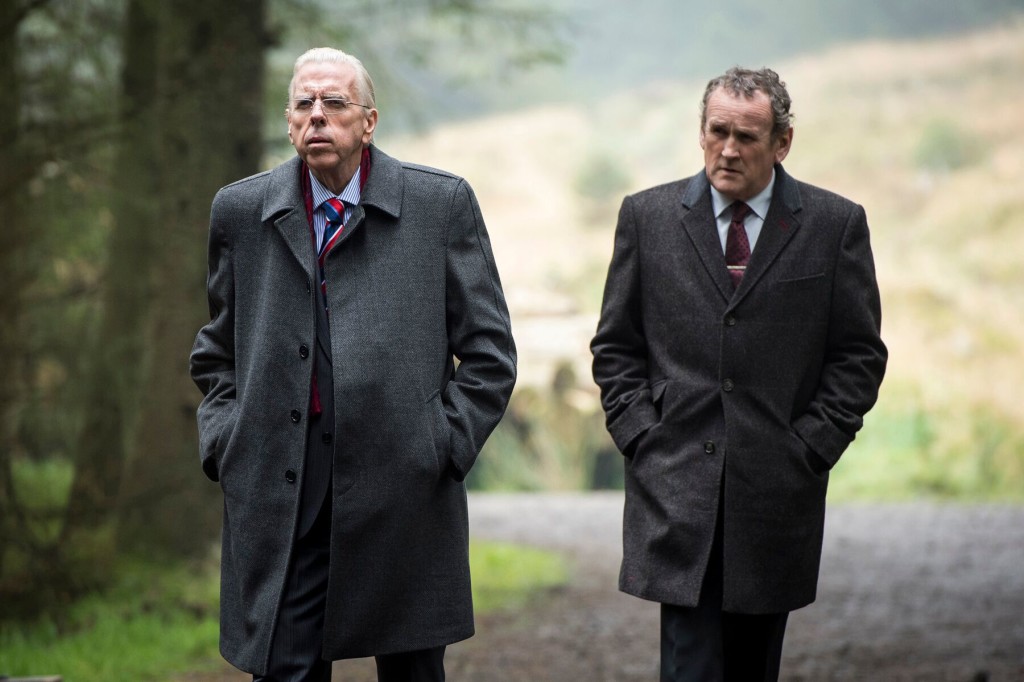
photo courtesy of SFFILM
The Journey imagines the pivotal personal interactions between the long-warring leaders of Northern Ireland’s The Troubles resulting in the 2006 St. Andrews Accords, which set up the current power-sharing government of Northern Ireland. Ian Paisley had lit the original fuse of the Troubles in the mid-1960s by igniting Protestant backlash to Catholic pleas for civil rights. Paisley then obstructed every attempted peace settlement for over thirty years. Martin McGuinness had transitioned to political leadership from chief of staff of the Irish Republican Army, resisting the violent repression of the british Army with a campaign of terror. Paisley and McGuinness led the two sides in what was essentially a decades-long civil war, although Paisley would dispute that term. You could fairly say that both had blood on their hands, McGuinness literally and Paisley morally. Yet they did agree to share power in 2006.
The Journey uses an entirely fictional plot device to isolate the two of them on a road trip. (The set-up is unlikely, but you have to go with it.) Then The Journey relies on the delightful work of two great actors, Timothy Spall, who plays Paisley, and Colm Meaney, who plays McGuinness.
Beyond the political differences and the blood grudge, the two make a classic Odd Couple. Spall’s Paisley seems completely impregnable to charm. The Journey is very funny as McGuinesss’ considerable charm and wit keeps falling flat. In fact, there are plenty of LOL moments from the awkward situations, McGuinness’ quips and their seemingly clueless driver (Freddy Highmore). Paisley seems utterly devoid of humor until an unexpected moment.
While The Journey is completely fictionalized, it is certainly true that the two had hated each other for decades, did reach agreement in 2006 and thereafter held posts in the same government and personally got along well, evolving an even affectionate personal relationship. We also see Tony Blair, Bertie Ahern, Gerry Adams and an imagined MI5 character played by John Hurt.
Spall and Meaney took on a considerable challenge: Paisley and McGuinness dominated the political news in Ireland for decades and are well-known to audiences in the UK and Ireland. Paisley died in 2014, and McGuinness died just last month. The Journey’s screenwriter Colin Bateman, was born in Northern Ireland, and The Journey was financed by Northern Ireland Screen.
Achieving a sustainable agreement with a longtime blood enemy requires deciding which of your positions are sacrosanct principles and which have more flexibility. It requires risking the loyalty of your political base, which will revolt against leaders perceived as selling them out. It requires gauging the likelihood that your opponent will stick to his side of the deal. And, you have to focus on your outcome – the long-term goal, not just on defeating your enemy in the moment. “Young men fight for the helluvit. Old men care about their legacy”, says Hurt’s character in The Journey.
I watched The Journey in April at the San Francisco International Film Festival (SFFILMFestival). To further explore this topic, here is my list of Best Movies About The Troubles.
